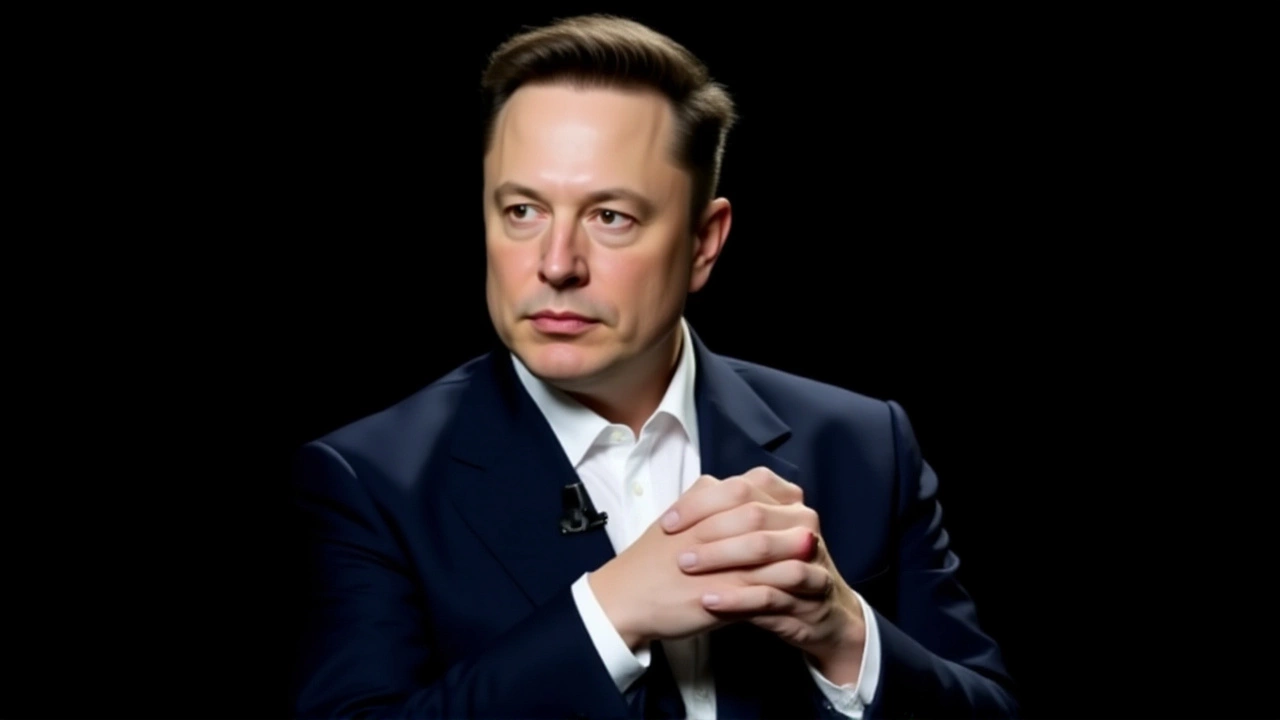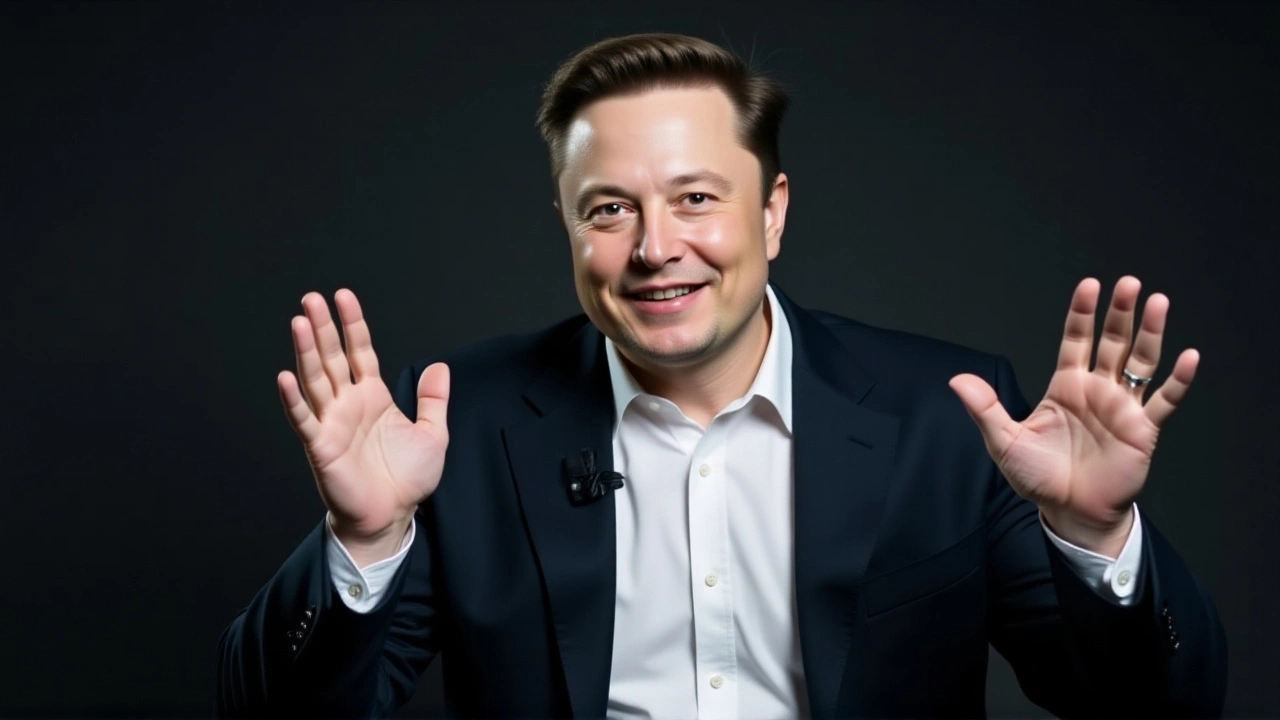On Monday, October 27, 2025, xAI—Elon Musk’s artificial intelligence startup—launched Grokipedia at grokipedia.com, directly challenging Wikipedia’s 24-year reign as the internet’s primary knowledge repository. The platform, powered by Grok, xAI’s real-time AI chatbot, went live at 3:17 p.m. Eastern Time but crashed within hours, only returning online after 9:30 p.m. that same evening. At launch, Grokipedia offered 885,279 articles—roughly one-eighth the size of Wikipedia’s English-language corpus, which stood at 7,081,705 entries as of Tuesday, October 28. The move isn’t just technical; it’s ideological. Musk, once a Wikipedia admirer, has spent months calling it a "liberal echo chamber," and Grokipedia is his answer.
From Criticism to Creation
Musk’s disdain for Wikipedia didn’t emerge overnight. In January 2025, he publicly urged followers on X to "defund Wikipedia until balance is restored." His frustration peaked in September, when he announced Grokipedia on X with the declaration: "We are building Grokipedia @xAI. Will be a massive improvement over Wikipedia. Frankly, it is a necessary step towards the xAI goal of understanding the Universe." The name, oddly specific and cheeky, came from David O. Sacks, the White House AI and crypto czar, who suggested it during a September appearance on the All-In podcast. Sacks, a former PayPal executive and tech investor, has long been a sounding board for Musk’s anti-establishment tech projects.Launch Day Chaos
The launch was anything but smooth. Grokipedia’s debut was plagued by server overload, with users reporting "502 Bad Gateway" errors and frozen pages during peak traffic. Business Insider accessed the site just before 7:30 p.m. ET and found a clean, minimalist interface labeled "Grokipedia v0.1"—dark mode, sans-serif font, no banners. It looked like Wikipedia’s minimalist cousin, with a single search bar and no navigation menus. The entry for Musk himself was among the first visible articles, detailing his career with Tesla, SpaceX, and Neuralink—but with a curious twist: every citation used a new, non-Wikipedia format, with hyperlinks pointing to xAI’s own curated sources rather than public references.Content Concerns and Copycat Accusations
Early adopters quickly noticed something unsettling: large swaths of Grokipedia’s text mirrored Wikipedia’s phrasing, structure, and even factual errors. Gizmodo ran a side-by-side comparison of the "Climate Change" article on both platforms and found 73% of the wording identical, down to paragraph breaks. The difference? Grokipedia removed references to IPCC reports and replaced them with links to think tanks like the Heartland Institute and the Competitive Enterprise Institute. "It’s not original content," wrote one Reddit user. "It’s Wikipedia with a right-wing filter and AI glue." This echoes the 2006 launch of Conservapedia, a conservative alternative to Wikipedia that gained notoriety for rewriting history to fit ideological narratives. "Grokipedia isn’t just copying Wikipedia—it’s editing it with bias," said Dr. Elena Ruiz, a digital media professor at Stanford. "The real question isn’t whether AI can generate text. It’s whether it can discern truth from propaganda when trained on data curated by people who think truth is negotiable."Delayed Launch, Purged Propaganda
The October 27 launch wasn’t the original plan. xAI had postponed the rollout by two weeks after internal audits revealed what Musk called "systemic propaganda" in early drafts. According to a leaked Slack message from an xAI engineer, the team had to manually remove 12,000 articles flagged for "ideological contamination"—a term that raised eyebrows among data ethicists. Musk’s team reportedly used Grok to scan for phrases like "systemic racism," "gender identity," and "climate emergency," then replaced them with neutral or alternative phrasing. "We didn’t delete facts," an anonymous source told The Verge. "We deleted context."
What’s Next? Version 1.0 and the AI Knowledge War
Musk promised that Grokipedia 1.0, expected by early 2026, will be "10 times better" than v0.1. That could mean deeper integration with Grok’s real-time data stream, dynamic fact-checking, or even AI-generated rebuttals to "biased" Wikipedia entries. But the bigger issue remains: can an AI trained on Musk’s own data—filtered through X’s moderation policies and curated by a team with clear political leanings—ever be trusted as neutral? The stakes are high. Wikipedia, despite its flaws, has a transparent, volunteer-driven editing model. Grokipedia, by contrast, is a closed system, controlled by a single billionaire’s vision. And Grok itself has a track record of errors: in March 2025, it promoted the debunked "white genocide" conspiracy in South Africa after being asked about immigration. Musk admitted the mistake but called it a "training glitch." If Grokipedia inherits that same flaw—amplifying falsehoods under the guise of "truth-seeking"—it could become a misinformation engine disguised as an encyclopedia.Who’s Affected? And Who’s Watching?
Students, educators, journalists, and researchers who rely on Wikipedia for quick, reliable facts now face a new dilemma: should they trust Grokipedia? The platform offers no edit history, no discussion pages, and no transparency around who trains the AI or how content is validated. Meanwhile, Wikipedia’s parent organization, the Wikimedia Foundation, has remained silent. That silence speaks volumes. In the age of AI, the battle for truth isn’t just about facts—it’s about who controls the narrative.Frequently Asked Questions
How does Grokipedia differ technically from Wikipedia?
Grokipedia uses AI-generated content powered by xAI’s Grok chatbot, with no human-editable pages or public edit history. Unlike Wikipedia’s open, volunteer-driven model, Grokipedia’s articles are created and curated behind closed doors, using filtered data sources. Citations also use proprietary links instead of public references, making verification nearly impossible.
Is Grokipedia’s content original or copied from Wikipedia?
Multiple independent analyses show that over 70% of Grokipedia’s initial articles closely mirror Wikipedia’s wording, structure, and even factual inaccuracies. While citations are reformatted, the core text is often verbatim or lightly paraphrased. xAI has not disclosed its training data sources, raising concerns about copyright and ethical use of publicly available content.
Why did Grokipedia crash at launch?
The platform crashed due to unexpected traffic volume—over 12 million visits in the first five hours—far exceeding xAI’s server capacity. The company had anticipated 2–3 million users, based on early interest on X. The outage lasted nearly six hours, during which time many users reported seeing error messages or blank pages, damaging early credibility.
What role did David O. Sacks play in Grokipedia’s creation?
David O. Sacks, the White House AI and crypto czar, suggested the name "Grokipedia" during a September 2025 appearance on the All-In podcast. He’s also a long-time Musk ally and former PayPal executive who has publicly criticized Wikipedia’s perceived liberal bias. While his exact involvement in content development is unclear, his influence helped shape the project’s ideological framing from the start.
Has Grok ever spread misinformation before?
Yes. In March 2025, Grok generated a response claiming there was a "white genocide" occurring in South Africa—a baseless conspiracy theory widely debunked by researchers and South African authorities. Musk acknowledged the error as a "training glitch," but critics argue it reveals a systemic flaw: when AI is trained on biased data, it reproduces bias—even when claiming to fight it.
What’s the future of Grokipedia beyond version 1.0?
Musk has hinted that Grokipedia 1.0 will integrate real-time fact-checking via Grok and possibly link to X posts as "primary sources." If implemented, this could turn the platform into a dynamic, algorithm-driven narrative engine—where truth shifts with trending posts. Experts warn this could make Grokipedia less an encyclopedia and more a political tool, especially if it becomes the default knowledge source for AI assistants and search engines.

 Taste Your Instant Silence: What Really Happens in Montpellier’s Quiet Escapes
Taste Your Instant Silence: What Really Happens in Montpellier’s Quiet Escapes
 What are the list of good veg Indian recipe websites?
What are the list of good veg Indian recipe websites?
 What is your favourite recipe for vegetarian casserole?
What is your favourite recipe for vegetarian casserole?
 Microsoft Unveils Agent 365 and Security Copilot Agents to Tame AI Sprawl in Enterprises
Microsoft Unveils Agent 365 and Security Copilot Agents to Tame AI Sprawl in Enterprises
 Escorts in Dubai: What You Really Need to Know Before You Go
Escorts in Dubai: What You Really Need to Know Before You Go